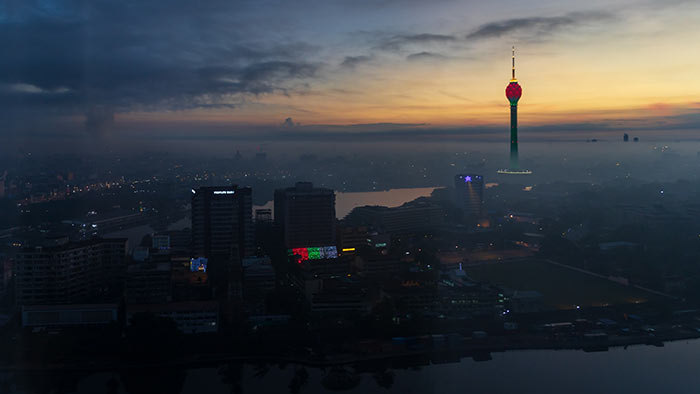Sri Lanka debt restructuring stumbles as government rejects bondholders’ proposal

Photo credits: unsplash
Reuters reports that Sri Lanka has turned down a restructuring plan proposed by international bondholders to address its $12 billion debt, thereby endangering crucial International Monetary Fund (IMF) aid and further delaying the resolution of its ongoing two-year debt crisis.
According to government sources, significant issues with the proposal included the baseline assumptions used and the absence of fallback measures in case of continued economic downturns.
The government of Sri Lanka remains hopeful for resumed discussions at the earliest possible opportunity.
Nevertheless, without reaching a compromise soon, the next installment of vital IMF support funds, totaling $337 million, might be postponed.
This funding is part of a broader $2.9 billion aid package already agreed upon with major governmental creditors, although securing IMF Board approval still requires an “agreement in principle” with bondholders.
A notable issue highlighted by the government was the discrepancy between the bondholders’ plan and the parameters set in the IMF program.
Recent negotiations have been stymied because the bondholders’ “steering committee” resisted extending “restricted discussions,” which are typically confidential and conducted behind closed doors.
Furthermore, Sri Lanka objected to a suggestion from bondholders to tie future debt repayments to the country’s economic performance through “macro-linked bonds” (MLB).
The government sought additional safeguards, particularly if the economy underperforms compared to the IMF’s growth forecasts, and requested a mechanism to activate adjustments in the MLB based on economic performance.
The failure to secure a deal has negatively impacted Sri Lanka’s bonds, which saw a decrease in value between 2.3 and 2.8 cents, currently trading at just over half their original value between 53 and 55 cents on the dollar.
Udeeshan Jonas, chief strategist at CAL Group, commented that completing the IMF review by June could now be challenging, necessitating further discussions.
Sri Lanka has been grappling with its most severe financial crisis since gaining independence in 1948, driven by a sharp decline in foreign exchange reserves in early 2022 that left the country unable to afford essential imports such as fuel, cooking gas, and medicine.
The nation defaulted on its foreign debt in May 2022 and began negotiations with bilateral creditors, securing preliminary agreements with major partners including China, India, and the Paris Club by November.
Despite these challenges, support from the IMF has helped moderate inflation to 0.9% in March, with the local currency appreciating by 7.6% this year. The economy is expected to rebound after shrinking 2.3% in 2023.
The debt crisis in Sri Lanka reflects broader challenges faced by other economically vulnerable nations.
For instance, Ghana has also encountered difficulties in its $13 billion restructuring talks after the IMF suggested that the prospective agreements with bondholders might not sufficiently stabilize its debt levels.
Viktor Szabo, a portfolio manager specializing in emerging market debt at Abrdn in London, believes that while Sri Lanka’s progress is slower than anticipated, it is still heading in the right direction and that the recent setbacks are likely to be temporary delays rather than deal-breakers.
Latest Headlines in Sri Lanka
- Fuel distributors urged to resume operations amid talks with CPC March 3, 2025
- Nominations for 2025 Local Government Elections open March 17, 2025 March 3, 2025
- CID complaint demands probe into fuel distributors’ Rs. 37 Billion scam March 3, 2025
- Fuel distribution smooth as CPC ensures adequate stocks until August 2025 March 3, 2025
- Sri Lanka to hold Sacred Tooth Relic exposition after 16 years March 3, 2025


